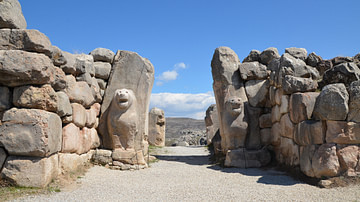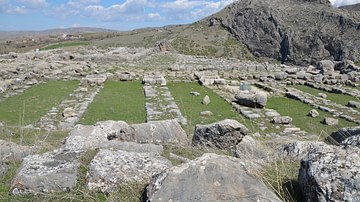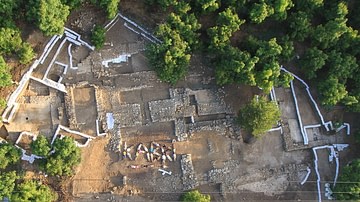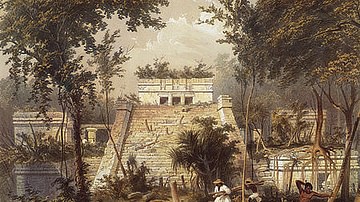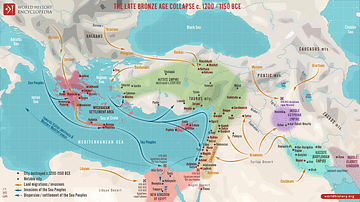Video
by The Oriental Institute
published on 19 September 2019
1177 BC: The Year Civilization Collapsed
February 25, 2015
Dr. Eric H. Cline
Professor of Classics and Anthropology
Chair of the Department of Classical and Near Eastern Languages and Civilizations
Director of the Capitol Archaeological Institute at The George Washington University, in Washington D.C.
For more than three hundred years during the Late Bronze Age, from about 1500 BC to 1200 BC, the Mediterranean region played host to a complex international world in which Egyptians, Mycenaeans, Minoans, Hittites, Assyrians, Babylonians, Cypriots, and Canaanites all interacted, creating a cosmopolitan and globalized world-system such as has only rarely been seen before the current day. It may have been this very internationalism that contributed to the apocalyptic disaster that ended the Bronze Age. When the end came, as it did after centuries of cultural and technological evolution, the civilized and international world of the Mediterranean regions came to a dramatic halt in a vast area stretching from Greece and Italy in the west to Egypt, Canaan, and Mesopotamia in the east. Large empires and small kingdoms, that had taken centuries to evolve, collapsed rapidly. With their end came the world’s first recorded Dark Ages. It was not until centuries later that a new cultural renaissance emerged in Greece and the other affected areas, setting the stage for the evolution of Western society as we know it today. Blame for the end of the Late Bronze Age is usually laid squarely at the feet of the so-called Sea Peoples, known to us from the records of the Egyptian pharaohs Merneptah and Ramses III. However, as was the case with the fall of the Roman Empire, the end of the Bronze Age empires in this region was not the result of a single invasion, but of multiple causes. The Sea Peoples may well have been responsible for some of the destruction that occurred at the end of the Late Bronze Age, but it is much more likely that a concatenation of events, both human and natural — including earthquake storms, droughts, rebellions, and systems collapse — coalesced to create a “perfect storm” that brought the age to an end.
Our lectures are free and available to the public thanks to the generous support of our members. To become a member, please visit: http://bit.ly/2AWGgF7
License & Copyright
Original video by The Oriental Institute. Embedded by Ibolya Horváth, published on 19 September 2019. Please check the original source(s) for copyright information. Please note that content linked from this page may have different licensing terms.
The video and its description text are provided by Youtube. This website claims no authorship of this content; we are republishing it for educational purposes.
